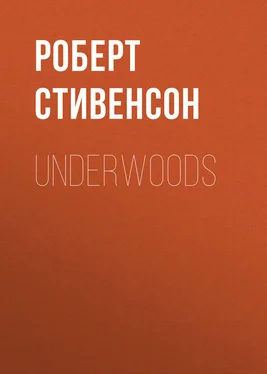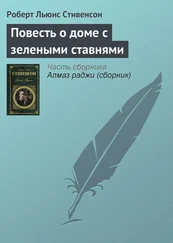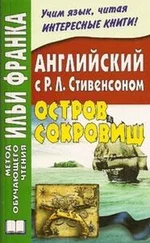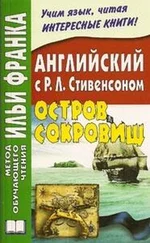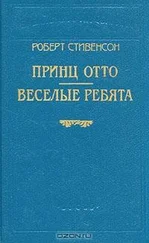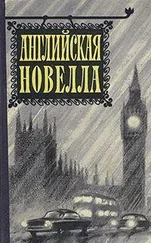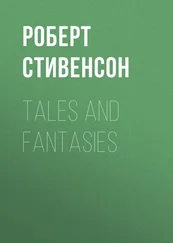Роберт Стивенсон - Underwoods
Здесь есть возможность читать онлайн «Роберт Стивенсон - Underwoods» — ознакомительный отрывок электронной книги совершенно бесплатно, а после прочтения отрывка купить полную версию. В некоторых случаях можно слушать аудио, скачать через торрент в формате fb2 и присутствует краткое содержание. Жанр: literature_19, Поэзия, foreign_antique, foreign_prose, foreign_poetry, на английском языке. Описание произведения, (предисловие) а так же отзывы посетителей доступны на портале библиотеки ЛибКат.
- Название:Underwoods
- Автор:
- Жанр:
- Год:неизвестен
- ISBN:нет данных
- Рейтинг книги:5 / 5. Голосов: 1
-
Избранное:Добавить в избранное
- Отзывы:
-
Ваша оценка:
- 100
- 1
- 2
- 3
- 4
- 5
Underwoods: краткое содержание, описание и аннотация
Предлагаем к чтению аннотацию, описание, краткое содержание или предисловие (зависит от того, что написал сам автор книги «Underwoods»). Если вы не нашли необходимую информацию о книге — напишите в комментариях, мы постараемся отыскать её.
Underwoods — читать онлайн ознакомительный отрывок
Ниже представлен текст книги, разбитый по страницам. Система сохранения места последней прочитанной страницы, позволяет с удобством читать онлайн бесплатно книгу «Underwoods», без необходимости каждый раз заново искать на чём Вы остановились. Поставьте закладку, и сможете в любой момент перейти на страницу, на которой закончили чтение.
Интервал:
Закладка:
Robert Louis Stevenson
Underwoods
Of all my verse, like not a single line;
But like my title, for it is not mine.
That title from a better man I stole:
Ah, how much better, had I stol’n the whole!
DEDICATION
There are men and classes of men that stand above the common herd: the soldier, the sailor and the shepherd not unfrequently; the artist rarely; rarely still, the clergyman; the physician almost as a rule. He is the flower (such as it is) of our civilisation; and when that stage of man is done with, and only remembered to be marvelled at in history, he will be thought to have shared as little as any in the defects of the period, and most notably exhibited the virtues of the race. Generosity he has, such as is possible to those who practise an art, never to those who drive a trade; discretion, tested by a hundred secrets; tact, tried in a thousand embarrassments; and what are more important, Heraclean cheerfulness and courage. So it is that he brings air and cheer into the sickroom, and often enough, though not so often as he wishes, brings healing.
Gratitude is but a lame sentiment; thanks, when they are expressed, are often more embarrassing than welcome; and yet I must set forth mine to a few out of many doctors who have brought me comfort and help: to Dr. Willey of San Francisco, whose kindness to a stranger it must be as grateful to him, as it is touching to me, to remember; to Dr. Karl Ruedi of Davos, the good genius of the English in his frosty mountains; to Dr. Herbert of Paris, whom I knew only for a week, and to Dr. Caissot of Montpellier, whom I knew only for ten days, and who have yet written their names deeply in my memory; to Dr. Brandt of Royat; to Dr. Wakefield of Nice; to Dr. Chepmell, whose visits make it a pleasure to be ill; to Dr. Horace Dobell, so wise in counsel; to Sir Andrew Clark, so unwearied in kindness and to that wise youth, my uncle, Dr. Balfour.
I forget as many as I remember; and I ask both to pardon me, these for silence, those for inadequate speech. But one name I have kept on purpose to the last, because it is a household word with me, and because if I had not received favours from so many hands and in so many quarters of the world, it should have stood upon this page alone: that of my friend Thomas Bodley Scott of Bournemouth. Will he accept this, although shared among so many, for a dedication to himself? and when next my ill-fortune (which has thus its pleasant side) brings him hurrying to me when he would fain sit down to meat or lie down to rest, will he care to remember that he takes this trouble for one who is not fool enough to be ungrateful?
R. L. S.Skerryvore, Bournemouth.
NOTE
The human conscience has fled of late the troublesome domain of conduct for what I should have supposed to be the less congenial field of art: there she may now be said to rage, and with special severity in all that touches dialect; so that in every novel the letters of the alphabet are tortured, and the reader wearied, to commemorate shades of mis-pronunciation. Now spelling is an art of great difficulty in my eyes, and I am inclined to lean upon the printer, even in common practice, rather than to venture abroad upon new quests. And the Scots tongue has an orthography of its own, lacking neither “authority nor author.” Yet the temptation is great to lend a little guidance to the bewildered Englishman. Some simple phonetic artifice might defend your verses from barbarous mishandling, and yet not injure any vested interest. So it seems at first; but there are rocks ahead. Thus, if I wish the diphthong ou to have its proper value, I may write oor instead of our ; many have done so and lived, and the pillars of the universe remained unshaken. But if I did so, and came presently to doun , which is the classical Scots spelling of the English down , I should begin to feel uneasy; and if I went on a little farther, and came to a classical Scots word, like stour or dour or clour , I should know precisely where I was – that is to say, that I was out of sight of land on those high seas of spelling reform in which so many strong swimmers have toiled vainly. To some the situation is exhilarating; as for me, I give one bubbling cry and sink. The compromise at which I have arrived is indefensible, and I have no thought of trying to defend it. As I have stuck for the most part to the proper spelling, I append a table of some common vowel sounds which no one need consult; and just to prove that I belong to my age and have in me the stuff of a reformer, I have used modification marks throughout. Thus I can tell myself, not without pride, that I have added a fresh stumbling-block for English readers, and to a page of print in my native tongue, have lent a new uncouthness. Sed non nobis .
I note again, that among our new dialecticians, the local habitat of every dialect is given to the square mile. I could not emulate this nicety if I desired; for I simply wrote my Scots as well as I was able, not caring if it hailed from Lauderdale or Angus, from the Mearns or Galloway; if I had ever heard a good word, I used it without shame; and when Scots was lacking, or the rhyme jibbed, I was glad (like my betters) to fall back on English. For all that, I own to a friendly feeling for the tongue of Fergusson and of Sir Walter, both Edinburgh men; and I confess that Burns has always sounded in my ear like something partly foreign. And indeed I am from the Lothians myself; it is there I heard the language spoken about my childhood; and it is in the drawling Lothian voice that I repeat it to myself. Let the precisians call my speech that of the Lothians. And if it be not pure, alas! what matters it? The day draws near when this illustrious and malleable tongue shall be quite forgotten; and Burn’s Ayrshire, and Dr. Macdonald’s Aberdeen-awa’, and Scott’s brave, metropolitan utterance will be all equally the ghosts of speech. Till then I would love to have my hour as a native Maker, and be read by my own countryfolk in our own dying language: an ambition surely rather of the heart than of the head, so restricted as it is in prospect of endurance, so parochial in bounds of space.
BOOK I. — In English
I – ENVOY
Go, little book, and wish to all
Flowers in the garden, meat in the hall,
A bin of wine, a spice of wit,
A house with lawns enclosing it,
A living river by the door,
A nightingale in the sycamore!
II – A SONG OF THE ROAD
The gauger walked with willing foot,
And aye the gauger played the flute;
And what should Master Gauger play
But Over the hills and far away ?
Whene’er I buckle on my pack
And foot it gaily in the track,
O pleasant gauger, long since dead,
I hear you fluting on ahead.
You go with me the self-same way —
The self-same air for me you play;
For I do think and so do you
It is the tune to travel to.
For who would gravely set his face
To go to this or t’other place?
There’s nothing under Heav’n so blue
That’s fairly worth the travelling to.
On every hand the roads begin,
And people walk with zeal therein;
But wheresoe’er the highways tend,
Be sure there’s nothing at the end.
Then follow you, wherever hie
The travelling mountains of the sky.
Or let the streams in civil mode
Direct your choice upon a road;
For one and all, or high or low,
Will lead you where you wish to go;
And one and all go night and day
Over the hills and far away !
Интервал:
Закладка:
Похожие книги на «Underwoods»
Представляем Вашему вниманию похожие книги на «Underwoods» списком для выбора. Мы отобрали схожую по названию и смыслу литературу в надежде предоставить читателям больше вариантов отыскать новые, интересные, ещё непрочитанные произведения.
Обсуждение, отзывы о книге «Underwoods» и просто собственные мнения читателей. Оставьте ваши комментарии, напишите, что Вы думаете о произведении, его смысле или главных героях. Укажите что конкретно понравилось, а что нет, и почему Вы так считаете.
